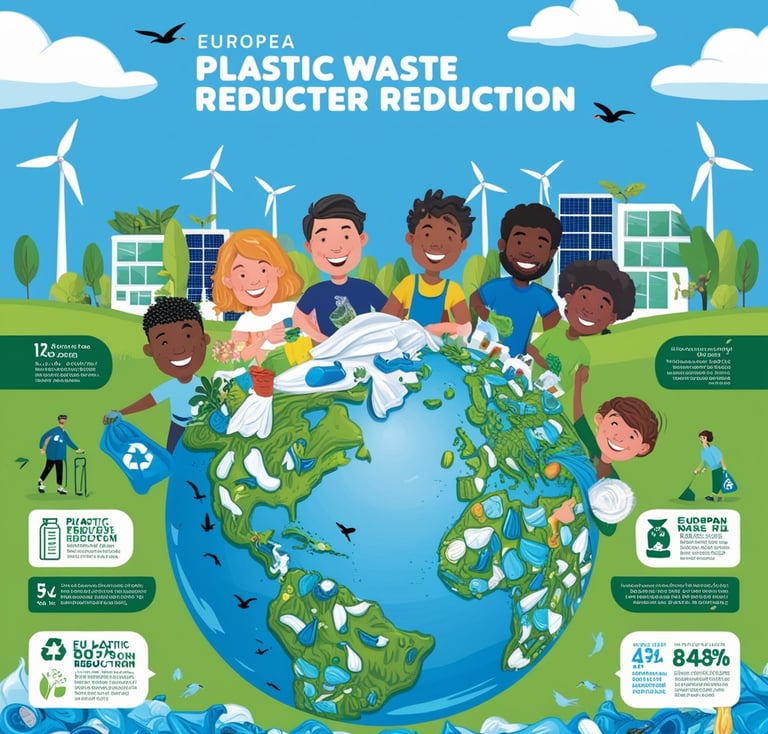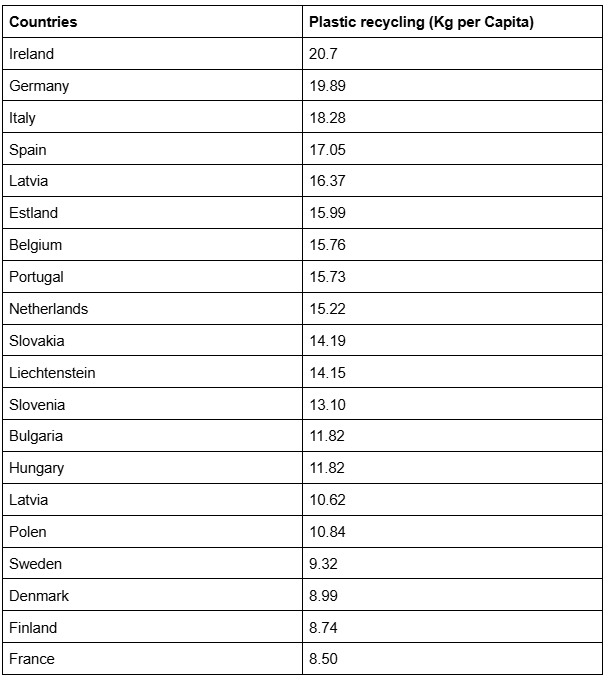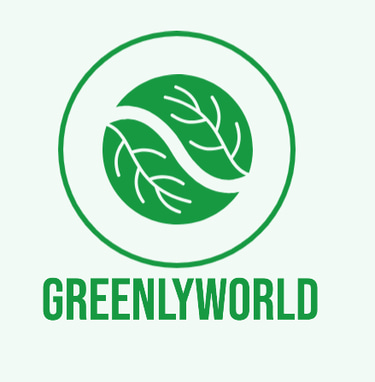Plastic Waste Reduction in Europe
Facts about some plastic waste reduction initiatives in EU Countries
FACTS AND DATA
GW Authors
10/29/20243 min read


In 2021 in the EU, each person generated 36.1 kg of plastic packaging waste on average. Between 2010 and 2021, the plastic packaging waste has increased 29 %.
The total plastic waste generated in the EU in 2021 was 16.13 mio. tonnes, and around 6.56 million tonnes of plastic waste were recycled.
The most used way to remove any plastic waste is energy recovery, and this indicates that plastic waste is used into usable heat, electricity, or fuel via incineration or other processes. The second most applied method is treating plastic waste.
Half of the plastic that is collected is exported to be treated in countries outside the EU. The reasons for export include lack of capacity, technology, or financial resources to treat the waste locally.
The EU has exported a lot of waste to non EU countries such as nonferrous metal scrap, paper, plastic, textile, glass wastes and these has mainly gone to Turkey, India and Egypt.
The low share of plastic recycling in the EU does indicate significant losses for the environment as well as the economy.
Around 22 mio. of tonnes of plastic is found in soils, rivers and oceans in 2019, and plastic leakage might double by 2060 according to some projections.
In 2019, plastic created more than 1.8 bio tonnes of GHG, which is around 3.4 % of global emissions. It is estimated that by 2060, emissions from plastics can be more than double, which would be a total of 4.3 billion tonnes of GHG emissions.
Challenges with plastic recycling
The main problem with complicated plastic recycling is the quality and price of the recycled product, in comparison to their unrecycled counterpart. Plastic processors does need large amount of plastic that is recycled, which is manufactured to some specifications with a price that is competitive.
Nevertheless, since plastics is easily customized to the needs, whether functional or esthetic, the diversity of the raw material makes the recycling process more challenging, therefore it becomes more costly and affects the quality of the product.
As a consequence, the demand for recycled plastics is increasing to a high degree.
The most recent data from 2021 shows that the countries that recycles the most is Ireland:
Interestingly, the more advanced countries or northern countries are at the bottom of plastic recycling, despite having policies and being at the forefront of sustainability. Countries such as Sweden, Denmark and France are some of the countries that recycles plastic the least, but other countries that are below that are Malta,
In 2019, had a new target of recycling bottles with rate of plastic bottles by 2025 with 25 %, and followed by a new goal of 2030 with 30 %.
A ban or law that will come into place is that 90 % of single-use plastic and metal beverage containers must be collected separately.
In addition, as part of the Green Deal, 55 % of plastic packaging have to be or should be recycled by 2030.
These measures includes:
making quality standards for secondary plastics
encourage certification to enhance the trust of both industry and consumers
Incorporating mandatory rules to minimize recycled content in specific end products
Encourage EU countries to reduce VAT on recycled products
Source:
Plastic waste and recycling in the EU: facts and figures | Topics | European Parliament
In addition, by 2025, PET bottles have to include at least 25 % recycled plastic, and by 2030 all beverage bottles must have at least 30% recycled plastic.
As of july 2024, it was seen that plastic caps are now attached to the bottles in Europe.
However, from the public it has gotten some critic for being annoying, since it hits people in the face and makes it more difficult to pour. The aim with the legislation is to reduce single plastic waste. By attaching the cap, the hope less people will throw the bottle out because it was common to throw away the cap. Whether it will help or not, the foreseeable future will tell.
In addition, packaging for fresh fruit and vegetables, mini hotel toiletries and fast food in restaurants will also bee banned soon
Source:
New EU Guidelines for Recycled Plastic Bottles - Foresight
Plastic waste and recycling in the EU: facts and figures | Topics | European Parliament


Contacts
greenlyworld@hotmail.com
